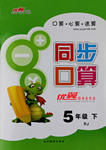题目内容
―_____ the letter on your way to office.( )
―O K. I _______.
A. Don’t forget posting; will B. Do remember to post; will
C. Do forget to post; do D. Do remember posting; do
B

练习册系列答案
 优翼小帮手同步口算系列答案
优翼小帮手同步口算系列答案
相关题目
| 完形填空 | ||||
| Billy is fourteen years old and in the ninth grade. He has a 1 job which gets him 2 at five o'clock every morn  ing. He is a 3 . ing. He is a 3 .Each morning, Billy leaves the house at 5: l5 to go to the corner 4 the newspapers are. The newspapers are delivered to the 5 by truck at midnight. He always takes a wagon (手推车) to carry them. In 6 , it is still dark and cold when he gets up, but during the rest of the year it is bright and warm. Billy must deliver the newspapers to the houses of people on his route (线路) in all kinds of weather. He tries to put each 7 on the porch (门廊) where it will be protected from 8 , rain or snow. His 9 think he does a good job. Sometimes they give him 10 . Billy 11 about $70 per month, and he is saving some of the money to go to college. He spends the rest 12 records and clothes. Once a month, he has to 13 money from his customers. Since many of them 14 during the day, Billy has to collect the money 15 . Sometimes, when Billy is 16 , his older brother has to 17 the newspapers. Once Billy's father had to help as well. Billy has seventy customers now, 18 he hopes to get more soon. Some day, if he gets many more customers, Billy might win a prize for being an outstanding(杰出的) newspaper boy. He wants to win a 19 to Europe, but he will also be happy 20 he wins a new bicycle. | ||||
|